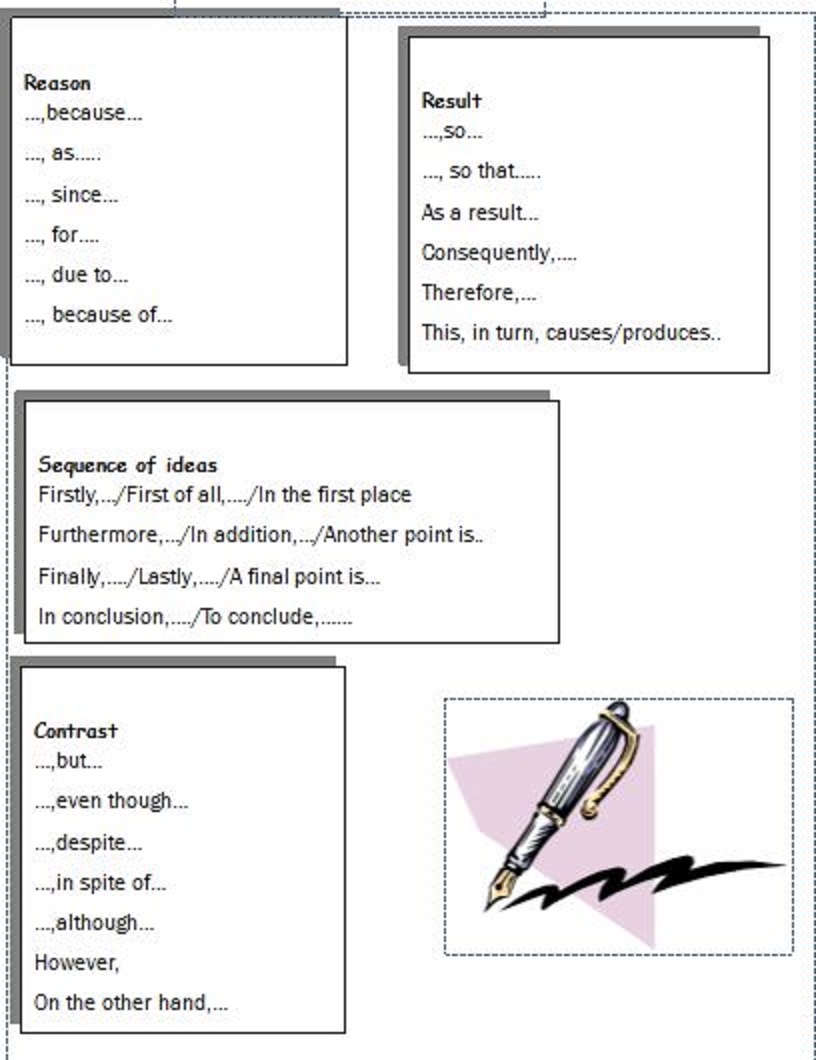36.1 – Linking expressions and transitions
36.1.1 – Words that help you put your ideas in order |
firstly, then, so far, secondly, in the end, next, eventually, subsequently, at last, at length, afterwards |
36.1.2 – Words for exception |
only, if unless, except(for), save for |
36.1.3 – Words to use to argue and make points |
consequently, thus, so, as a result, because, as, hence, therefore, since, until, whenever, accordingly, as long as |
36.1.4 – Words to help you give examples |
for example, for instance, such as, take the case of, thus, as (evidence), to show that, as revealed by |
36.1.5 – Words for extra points or ideas |
and, too, what is more, also, furthermore, and then, again, moreover, as well as, in addition |
36.1.6 – Words that help you emphasize points |
above all, in particular, notably, specifically, indeed, more important, especially, significantly, in fact |
36.1.7 – Words to persuade |
of course, naturally, obviously, clearly, certainly, surely, evidently |
36.1.8 – Words to help you show an opinion or analyze |
it would seem, to suggest, one might conclude/deduce/infer/imply/say/consider |
36.1.9 – Words to make a contrast or show what is different |
but, nevertheless, alternatively, despite this, on the contrary, however, yet, the opposite, instead, whereas, to turn to, although, still, on the other hand |
36.1.10 – Words to compare things in your writing or show what is the same |
equally, in the same way, as with, likewise, similarly, compared with, an equivalent |
36.1.11 – Words to sum up or end with |
in brief, in summary, throughout, in all, on the whole, to sum up, overall, finally, to conclude, to recap, in the end |
